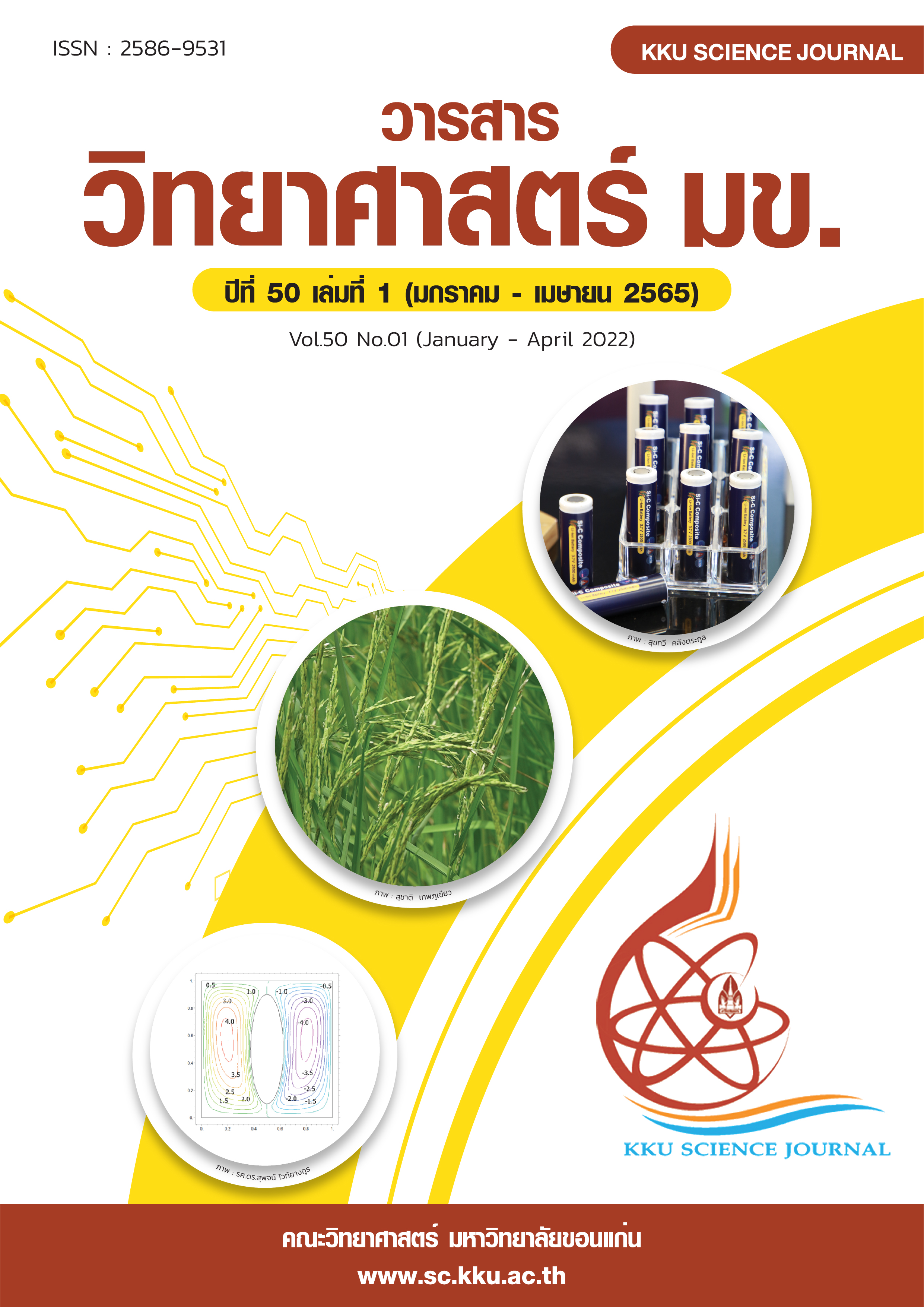Personality Homogeneity Team with Team Performance in Software Engineering Teams : A Case Study in Software Engineering Student
Main Article Content
Abstract
Teamwork is a necessary skill for future software developers in software development projects. Successful teamwork for software development depends on the hard skills and soft skills of software developers. Soft skills are personality traits. Team members should understand similarities and respect the differences among team members in order to improve team efficiency. This research studied the effects of personality homogeneity on team performance by collecting data on 147 third-year software engineering students developing software applications using the scrum technique for one year. The students were divided into 16 teams with 8–10 students per team. Personality traits were measured using MBTI personality assessment and team performance was measured using average software development scores from four different cycles which included scores from the software development process containing eight issues and 40 points, and scores from product evaluation which was ten points. Scores were given by ten software development experts. The results show that similarities in personality among team members have no impact on teamwork and quality of software. Although analyzed results were positively correlated, they were not statistically significant at 0.05.
Article Details

This work is licensed under a Creative Commons Attribution-NonCommercial-NoDerivatives 4.0 International License.
References
Acuña, S.T., Gómez, M. and Juristo, N. (2009). How do personality, team processes and task characteristics relate to job satisfaction and software quality?. Information and Software Technology 51(3): 627-639.
Acuna, S.T., Gómez, M.N., Hannay, J.E., Juristo, N. and Pfahl, D. (2015). Are team personality and climate related to satisfaction and software quality? aggregating results from a twice replicated experiment. Information and Software Technology 57(1):141-156.
Bootzin, R.R., Bower, G.H., Crocker, J. and Hall N. (1991). Psychology Today an Introduction. (7th ed.). New York: McGraw-Hill.
Bradley, J.H. and Hebert, F.J. (1997). The effect of personality type on team performance. Journal of Management Development 16(5): 337-353.
Capretz, L.F. (2003). Personality types in software engineering. International Journal of Human-Computer Studies 58(2): 207-214.
Capretz, L.F. and Ahmed, F. (2010). Why do we need personality diversity in software engineering?. ACM SIGSOFT Software Engineering Notes 35(2): 1-11.
Chen, J., Qiu G., Yuan, L., Zhang, L. and Lu, G. (2011). Assessing Teamwork Performance in Software Engineering Education: A Case in a Software Engineering Undergraduate Course. In: 18th Asia- Pacific Software Engineering Conference. 17-24.
Chiaburu, D.S., Oh, I. S., Berry, C.M., Li, N. and Gardner, R.G. (2011). The Five-Factor Model of Personality Traits and Organizational Citizenship Behaviors: A Meta-Analysis. Journey of Amplified Psychology 96(6): 1140-1166.
Choi, K.S., Deek, F.P. and Im, I. (2008). Exploring the underlying aspects of pair programming: The impact of personality. Information and Software Technology. Information and Software Technology 50(11): 1114-1126.
Galpin, V.C., Sanders, I.D. and Chen, P. (2007). Learning styles and personality types of computer science students at a South African university. In: Proceedings of the 12th Annual SIGCSE Conference on Innovation and Technology in Computer Science Education-ITiCSE.
Gilal, A.R., Jaafar, J., Capretz, L.F., Omar, M., Basri S. and Aziz I.A. (2017). Finding an effective classification technique to develop a software team composition model. Journal of Software: Evolution and Process 29(10): 1-12.
John, O.P. and Srivastava, S. (1999). The Big Five Trait taxonomy: History, measurement, 306 and theoretical perspectives. In L. A. Pervin and O. P. John (Eds.), Handbook of personality: Theory and research. New York: Guilford Press. pp. 102–138.
Jung, C.G. (1923). Psychological types; or, The psychology of individuation. London: Paul, Trench, Trubner.
Karn J., Syed-Abdullah, S., Cowling, A.J. and Holcombe, M. (2007). A study into the effects of personality type and methodology on cohesion in software engineering teams. Behaviour and Information Technology 26(2): 99-111.
Lynch, A.Q. (1985). The Myers-Briggs Type Indicator: A tool for appreciating employee and client diversity. Journal of Employment Counseling 22(3): 104–109.
Myers, I.B., McCaulley, H.M., Quenk, N.L. and Hammer, A.L. (1998). MBTI Manual: A Guide to the Development and Use of the Myers Briggs Type Indicator. Soviet Union, USA: Consulting Psychologists Press.
Permana, P.A. (2015). Scrum Method Implementation in a Software Development Project Management. International Journal of Advanced Computer Science and Applica-tions 6(9): 198-204.
Peslak, A.R. (2006). The impact of personality on information technology team projects. In: Proceedings of the 2006 ACM SIGMIS CPR conference on computer personnel research: Forty four years of computer personnel research: achievements, challenges and the future. 273-279.
Pieterse, V. and Eekelen, M. van, (2016). Which Are Harder? Soft Skills or Hard Skills?. Springer International Publishing. 160-167.
Pieterse, V., Leeu M. and Eekenlen, M.V. (2018). How personality diversity influences team performance in student software engineering teams. In: 2018 Conference on Information Communications Technology and Society (ICTAS). 1-6.
Poonam, R. and Yasser, C.M. (2018). An experimental study to investigate personality traits on pair programming efficiency in extreme programming. In: 2018 5th International Conference on Industrial Engineering and Applications (ICIEA). 95-99.
Qamar, N. and Malik, A.A. (2019). Birds of a Feather Gel Together: Impact of Team Homogeneity on Software Quality and Team Productivity. IEEE Access 7: 96827-96840.
Serrador, P. and Pinto, J.K. (2015). Does agile work?: a quantitative analysis of agile project success. International Journal of Project Management 33(5): 1040-1051.
Shameem, M., Kumar, C. and Chandra, B. (2017). A proposed framework for effective software team performance: A mapping study between the team members personality and team climate. In: 2017 International Conference on Computing, Communication and Automation (ICCCA). 912-917.


